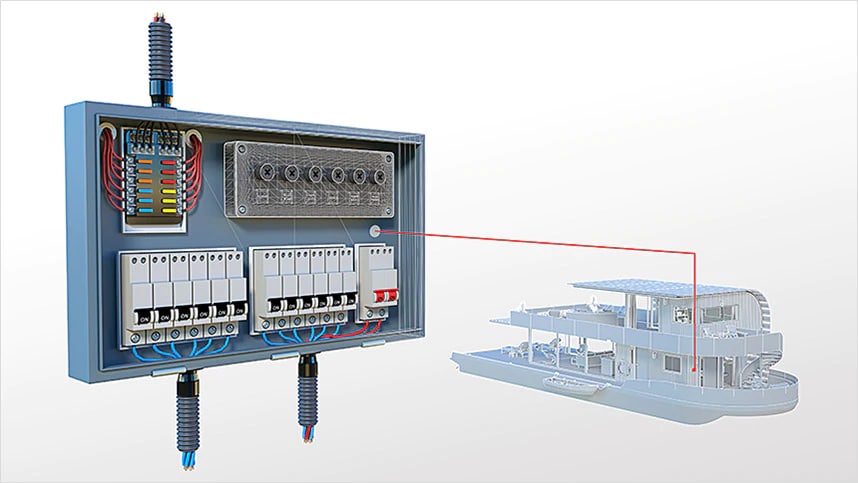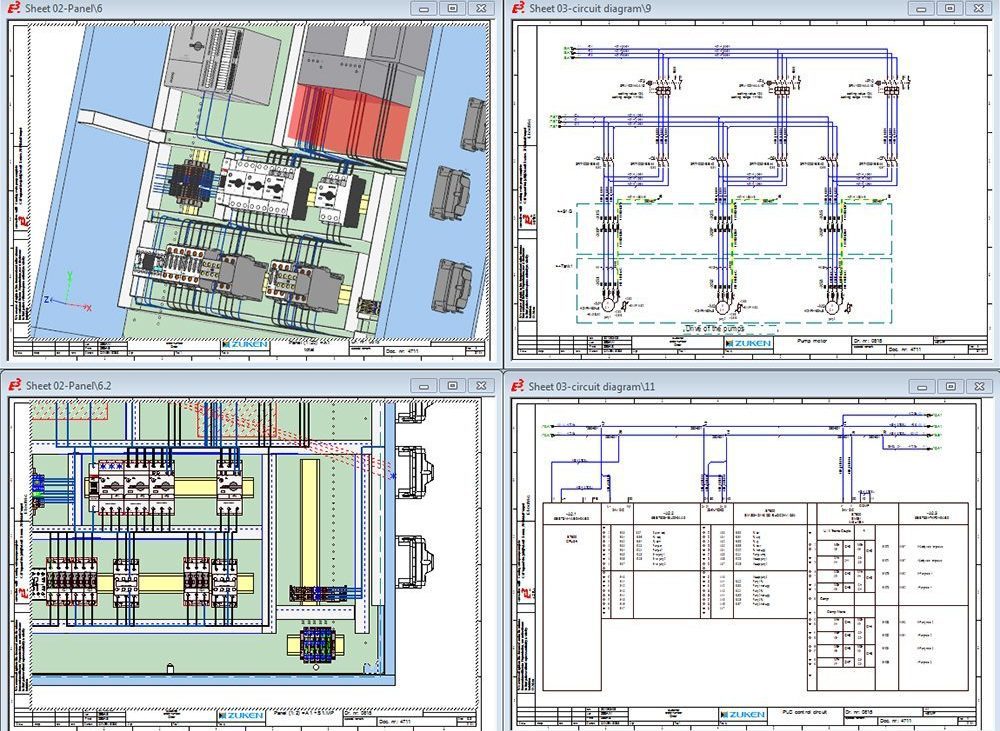Improving Industrial Electrical Design for Complex Operations
Improving Industrial Electrical Design for Complex Operations
Blog Article
Innovative Electrical Design Services for Modern Framework
As metropolitan environments expand progressively complex, incorporating technologies such as wise grids and sustainable energy sources ends up being extremely important. These improvements not just guarantee to optimize energy consumption but also foster resilience versus future needs.
Relevance of Ingenious Electric Design
Innovative electric design plays a crucial function in modern infrastructure, affecting not only performance but likewise sustainability. As cities advance and the demand for power boosts, the need for advanced electric systems ends up being extremely important. These systems must not only meet existing needs yet likewise expect future growth and technical advancements.
A well-executed electric design can substantially minimize power consumption, consequently decreasing functional prices and reducing ecological impact. By incorporating eco-friendly power sources, such as solar panels and wind generators, ingenious styles can improve power freedom and strength. Smart grid innovations allow for real-time surveillance and administration of power distribution, optimizing efficiency and reducing waste.
Safety is an additional essential aspect of electrical design. Implementing extensive standards and innovative modern technologies can alleviate dangers connected with electric failures, making sure a secure atmosphere for organizations and residents alike. In addition, ingenious layouts help with versatility, permitting infrastructures to integrate arising modern technologies perfectly.
Secret Fads in Electric Design
As the landscape of electrical design remains to advance, several crucial fads are shaping the future of the industry. One considerable fad is the integration of smart innovation right into electrical systems. The proliferation of the Net of Things (IoT) has actually allowed real-time tracking and control of electrical devices, enhancing efficiency and facilitating predictive maintenance.
One more trend is the expanding focus on modular design. This technique enables adaptable and scalable services, allowing infrastructure to adapt to changing requirements without comprehensive restorations. Furthermore, using innovative simulation devices and Structure Details Modeling (BIM) is coming to be progressively prevalent, streamlining the design process and improving collaboration amongst stakeholders.
Additionally, innovations in materials science are resulting in the development of lighter, a lot more durable, and energy-efficient components. This innovation is particularly crucial for high-performance buildings and framework tasks.
Last but not least, there is a marked shift in the direction of data-driven decision-making - residential electrical design. Leveraging information analytics aids developers enhance systems for efficiency and cost-effectiveness. Together, these fads signify a transformative period in electric design, boosting capability, sustainability, and durability in modern facilities
Lasting Energy Solutions
Lasting energy remedies are increasingly coming to be an important emphasis in electric design, reflecting a more comprehensive dedication to environmental obligation and source effectiveness. These remedies aim to reduce ecological influence while enhancing energy intake in numerous frameworks, from domestic structures to large commercial facilities.
Among the leading approaches entails the combination of renewable resource resources, such as photovoltaic panels and wind generators, right into electrical systems. This not just reduces dependence on fossil gas but also improves energy resilience. Furthermore, cutting-edge energy storage systems, such as advanced batteries, allow effective management and distribution of energy, making sure that excess power created throughout optimal manufacturing can be utilized during high need durations.
Moreover, energy-efficient design techniques are being adopted to improve overall system efficiency. This includes using energy-efficient lights, cooling and heating systems, and clever building technologies that keep track of and adapt energy usage based on tenancy and ecological problems.
Smart Grid Technologies
The execution of lasting power options normally brings about the exploration of wise grid modern technologies, which play a crucial role in updating electric systems. Smart grids utilize progressed interaction modern technologies and data analytics to enhance the reliability, efficiency, and sustainability of electrical power distribution. By incorporating electronic innovation with standard grid infrastructure, these systems promote real-time surveillance, automated control, and boosted decision-making abilities.
Among the key features of clever grids is their capacity to suit renewable power resources, such as solar and wind power. This flexibility not just lowers reliance on nonrenewable fuel sources however also allows for a much more decentralized energy manufacturing version. Wise grids enable need reaction programs, where customers can adjust their power use based on real-time pricing, thus promoting power preservation and minimizing peak lots demands.
In addition, wise grid modern technologies boost grid resilience by allowing quicker identification and resolution of browse around this web-site failures, eventually lessening downtime. With anticipating maintenance and analytics, energies can enhance and optimize procedures service delivery. As areas and cities continue to advance, smart grid technologies are necessary for building a efficient and lasting electrical facilities that satisfies the demands of modern culture.

Future-Proofing Facilities
To ensure lasting stability and versatility, future-proofing facilities is vital this page in the quickly evolving landscape of electric design services. As modern technology developments and energy needs shift, it is vital that electrical systems are designed with flexibility in mind. This requires incorporating scalable solutions that can suit future upgrades without demanding comprehensive overhauls.

Furthermore, sustainability must be a cornerstone of future-proofed layouts. Utilizing renewable resource resources, such as solar and wind, and enhancing power performance decrease dependence on fossil gas, aligning with global efforts to battle climate adjustment.
Final Thought
By focusing on sustainability, flexibility, and performance, these services resolve the evolving needs of energy systems. The integration of clever grid modern technologies and lasting power solutions boosts strength and decreases operational costs.
A well-executed electric design can substantially minimize energy intake, thus decreasing functional expenses and reducing ecological impact. By including sustainable energy resources, such as solar panels and wind generators, innovative layouts can improve energy freedom and strength. Additionally, cutting-edge energy storage space systems, such as sophisticated batteries, allow more tips here efficient monitoring and distribution of power, guaranteeing that surplus power produced throughout peak production can be utilized throughout high demand durations.
Smart grids enable demand feedback programs, where consumers can readjust their energy usage based on real-time rates, thus advertising energy conservation and decreasing peak lots demands. (electrical engineering design services)
As modern technology developments and power needs shift, it is critical that electrical systems are developed with flexibility in mind.
Report this page